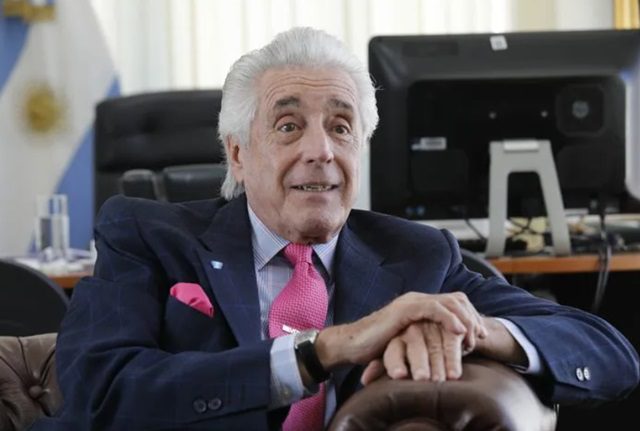BTN News: As Argentina celebrates its second consecutive Copa América victory, a significant development in the world of sports law has taken place. The Inspección General de Justicia (IGJ), a key legal body responsible for the regulation of sports corporations, has made strides toward allowing civil associations, such as sports clubs, to transform into corporations. This landmark decision was signed by Roque Vítolo, who spoke with LA NACION to shed light on this pivotal change.
Why was the resolution published the day after the Copa América win?
Vítolo emphasized that the timing was purely coincidental, stating, “The resolution was published on July 16th in honor of the Virgen del Carmen, who is the patron saint of my family and office. We’ve been working on this resolution for 180 days, and the choice of date was a personal homage, not connected to the Copa América.”
Opening Doors to Sports Corporations
The new IGJ resolution does not explicitly mention sports corporations (SADs), but it paves the way for them. According to Vítolo, the transformation of sports clubs into corporations has been legally possible for over 50 years under various laws, including the 1972 original version of the Law 19550 and the 2015 reform of the National Civil and Commercial Code. However, clubs remained civil associations due to restrictions imposed by the Sports Law 2655, which required sports entities to be civil associations.
The game-changer is a recent reform that adds a clause to the Sports Law, allowing sports corporations to participate in the sports system. This significant change mandates that federations, including the Argentine Football Association (AFA), update their statutes within a year once the decree is regulated. The countdown for this change has not yet begun, as the decree is still pending regulation.
Regulatory Responsibilities
Vítolo explained that the responsibility for regulating this part lies with the Executive Power, specifically the Cabinet Chief and the Secretary of Sports. They need to clarify what constitutes a two-thirds majority of associates required for the transformation of civil associations into corporations. This involves deciding which associates count in this majority—whether it’s all members, active participants, or those attending the assembly.
Potential Legal Challenges
If federations like AFA do not amend their statutes, the issue will likely be taken to court, as it is a legal obligation. Vítolo noted that, despite opposition, there has been no official challenge from AFA against this decree. However, individual clubs might feel aggrieved.
Judicial Implications
Vítolo addressed concerns about potential judicial implications, stating that a current injunction only affects the Liga de Salto and not other leagues or federations. This injunction was issued by the Justice of Mercedes following a complaint from the Liga de Salto, which requested an extension to cover all associations—a clear indication that the current scope is limited.
Resistance to Sports Corporations
Regarding the opposition to SADs in Argentina, Vítolo attributed it to the power dynamics within sports federations. He suggested that leaders of these federations might resist sharing their influence with new corporate entities. He also pointed out Argentina’s conservative stance on legislative changes, using the example of labor law reforms that have seen little progress despite high unemployment and poverty rates.
Financial Aspects
When asked about where the money would go if an investor wanted to “buy” a club, Vítolo clarified that it would be up to the members to decide, as there is no specific legislation in Argentina for this scenario yet. He mentioned that other countries have specific laws governing such transactions.
Comparison with Other Countries
Vítolo highlighted that not all successful football clubs are corporations. For instance, Barcelona and Real Madrid are associations or foundations and still perform exceptionally well. He believes there is room for both civil associations and corporations in Argentina’s sports landscape.
Potential Reforms
He expressed his personal belief that a combination of civil associations and professional football business entities would be beneficial. This approach would maintain the social aspect of clubs while allowing the professional side to operate more commercially. He cited examples from Chile, Uruguay, Peru, and Spain, where different organizational structures coexist successfully.
In conclusion, Argentina is on the brink of a significant transformation in its sports industry. The move towards allowing sports clubs to become corporations could modernize the sector and attract new investments. However, this change will require careful regulation, legal adjustments, and perhaps a shift in the traditional power structures within Argentine sports.


